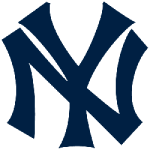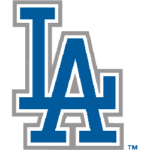Are you wearing a baseball cap with NY or LA on it? If you’re not, you probably know someone who does. Either way, you probably see dozens of them daily.
It’s a logo that’s become part of our day-to-day aesthetic, though you may be interested to learn that NY and LA aren’t necessarily about the respective cities in the US.
 Doesn't ‘NY’ mean New York? That’s the logo of the New York Yankees baseball team. And that ‘LA’? Nope, it’s not the city; it’s the official logo of the LA Dodgers.
Doesn't ‘NY’ mean New York? That’s the logo of the New York Yankees baseball team. And that ‘LA’? Nope, it’s not the city; it’s the official logo of the LA Dodgers.
In these two instances, the sports logo has transcended its original purpose to become a fashion accessory. While many Yankees/Dodgers fans must feel that non-fans have appropriated their teams’ logo, it displays the sheer power of the logo in the 21st century.
A Short History of the Sport Logo
Identifying a point in time when the sports logo became a thing is problematic so that we won’t go there. We do know that logos evolved from letters or colors pertaining to a team, and they evolved from that point.
More formalized logos began to appear at the start of the 20th century. One of the oldest is the 1901 NFL logo for the Arizona Cardinals; the Yankees logo, cited above, was designed by Tiffany & Co. in 1909.
The logo as we know it didn’t become a thing until the 1950s with the advent of greater visibility via the TV. Now, there was more emphasis on the logo; they became standardized and were preserved with copyrights, giving them an authenticity a fan could associate with.
A Symbol of Fandom
 Except for team logos that have transcended their origins to become fashion items (Yankees, Dodgers, etc), a team logo is a subjective motif. This means it will mean something different depending on whether you’re a fan of the team the logo represents, as the case may be.
Except for team logos that have transcended their origins to become fashion items (Yankees, Dodgers, etc), a team logo is a subjective motif. This means it will mean something different depending on whether you’re a fan of the team the logo represents, as the case may be.
So, for fans, team logos are akin to religious icons, but for the opposition, such symbols can illicit rage while being meaningless to anyone in the middle. But what happens when an outsider, such as another company, puts their logo alongside the team logo?
Take the sometimes controversial subject of having online casinos sponsoring teams. Does that now mean that fans of a team see the sponsor's logo in a different light?
The short answer is yes, even if that doesn’t necessarily result in said fan suddenly getting into cleopatra slots. But it might mean that the fan will have an emotional connection to the company in question, and maybe it will inspire them to try out some of the games.
This by-proxy loyalty is priceless, allowing a business to attain an emotional legacy purely by association. It doesn’t end there; a logo that once represented a business concern can now transcend language and cultural barriers simply by being seen with a team’s sports logo.
Worldwide visibility
These days, the sports logo has become far more than the sum of its parts. Retake the Yankees/Dodgers model, where the logo has moved on from its earliest association with the team.
People relate to the cool factor of a NY/LA baseball cap because it’s been seen decorating the heads of stars outside the sporting arena. Manchester United has become a global brand almost entirely separate from its local football fanbase.
For example, Floyd Mayweather and Miley Cyrus may be Hollywood celebrities, but they have both been snapped wearing Manchester United strips. This, in turn, changes how we see Manchester United because its logo is now imbued with forces outside its original meaning.
How influential are sports logos for their fanbase?
Sports logos have always appealed to people with absolutely no connection with the sport in question. Logos for the Lakers and Chicago Bulls are languishing on kids' and adults' rails in high-street clothing chains up and down Europe, for example.
People want to be seen as a part of an institution that has provenance and made itself successful. A decade or so, a similar thing happened with punk and heavy metal bands when everyone was suddenly wearing a Ramones or Metallica tee-shirt.
These people didn’t have to like these bands; they were merely following a fashion, just like the children wearing Lakers Pyjamas, or their parent's Yankees hats, or Man U tee-shirts. It seems everyone wants to have a slice of that contagious passion, which is summarised in a sports logo.
___
Sports Logo History is a vibrant community of sports logo enthusiasts who share a deep appreciation for the captivating histories behind each team's logo. We take pleasure in exploring the evolution of primary logos, alternate logos, and wordmark logos from renowned leagues such as the NFL, NBA, MLB, MLS, NHL, Premier League, WNBA, CFL, NCAA, ABA, USFL, AAF, and XFL. Immerse yourself in the intricate details and stories behind these iconic symbols that represent the essence of each team.
In the enthralling realm of sports, the battle of logos among different leagues unfolds as a captivating and ongoing spectacle. Step into the world of Sports Logo History, where we showcase the relentless pursuit of distinction by leagues such as the NFL, NBA, MLB, Premier League, and countless others. Witness the captivating journey as each league strives to create logos that not only capture the essence of their sport but also resonate deeply with fans.
Immerse yourself in the comprehensive sports history provided by Sports Team History, our esteemed partner site, where you can discover the triumphs, challenges, and defining moments that have shaped the legacies of professional sports teams. Stay up to date with the latest sports news through Sports News History, a platform delivering 24/7 coverage of highlights, player interviews, and game analyses. Additionally, express your unwavering support for your favorite teams by exploring Sports Market History, the premier sports team marketplace offering a vast selection of jerseys, memorabilia, and collectibles. Join our community today and celebrate the rich history, iconic logos, and passion of sports.

